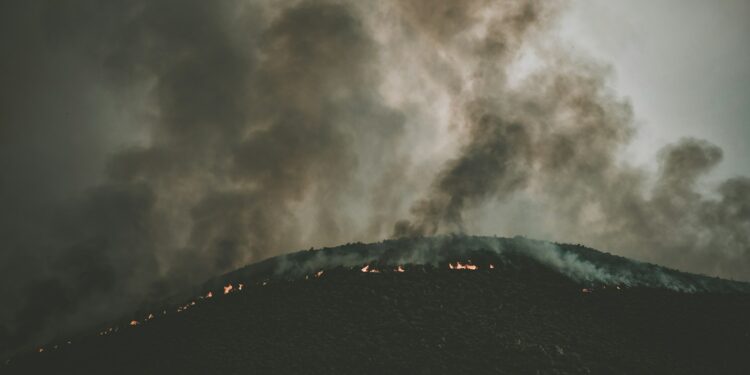It’s linked to a higher risk of brain deterioration.
A recent study suggests that the increasing frequency of wildfires due to climate change could pose a significant threat to brain health. According to findings presented at the Alzheimer’s Association annual meeting in Philadelphia, wildfire smoke may elevate the risk of dementia more than other forms of air pollution.
Researchers discovered that exposure to wildfire smoke is associated with a greater increase in dementia risk compared to other pollutants. Specifically, for every 1 microgram per cubic meter increase in particle pollution from wildfire smoke, there is a 21% rise in the likelihood of developing dementia. In contrast, other types of air pollution only showed a 3% increase in dementia risk for every 3 micrograms per cubic meter increase in particulates.
The study analyzed health records from over 1.2 million Kaiser Permanente members aged 60 and above in Southern California between 2009 and 2019, comparing them with air quality data from the U.S. Environmental Protection Agency. The findings revealed that particle pollution from wildfires, which is notably more toxic and smaller in size compared to pollution from vehicles or industrial sources, is increasingly prevalent on days with poor air quality in California.
Dr. Holly Elser, the lead researcher and a neurology resident at the Hospital of the University of Pennsylvania, emphasized that while previous studies have linked particle pollution to dementia, wildfire smoke presents an even greater risk. Senior researcher Joan Casey of the University of Washington highlighted that these risks are particularly pronounced among marginalized communities and in areas with high poverty.
The study underscores the need for effective policies to mitigate wildfire risks and improve air quality. For individuals in wildfire-prone areas, the researchers recommend monitoring air quality, staying indoors during high pollution periods, using air purifiers, and wearing masks when going outside. These preliminary findings, presented at a medical conference, will need further validation through peer-reviewed publications.

































Discussion about this post